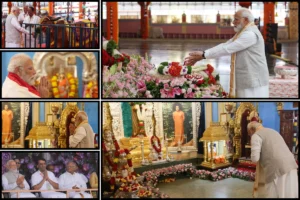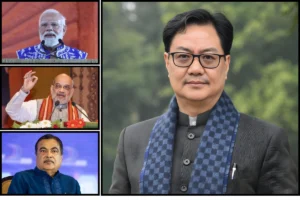
The Supreme Court, led by Chief Justice of India BR Gavai, struck down key provisions of the Tribunal Reforms Act, 2021.
The Court held that Parliament had repackaged provisions already invalidated by the apex court without fixing their constitutional flaws.
The CJI Gavai-led Bench said the 2021 Act replicated, almost verbatim, provisions that the Madras Bar Association case had struck down.
The Bench noted that the Union government had repeatedly chosen to ignore decades of settled law.
The Bench said it must express disapproval of the Union of India’s repeated actions.
The government has chosen not to accept the directions of this Court. These directions concern issues already conclusively settled through a series of judgments.
The Court emphasised that the legislature had reintroduced certain provisions. These provisions reopen the same constitutional debates.
CJI Gavai Strikes Act
The Court said the legislature ignored well-established principles regarding the independence and functioning of tribunals.
The Court quoted Dr BR Ambedkar, saying repeated reenactments affected the ‘form of the administration.’
It added that these actions made the administration inconsistent with the Constitution’s spirit.
The judgment noted that merely shifting previously struck-down content into new legislation does not cure constitutional defects.
“The Impugned Act does not cure the law declared earlier but consciously defies it,” the Court said.
The Bench highlighted that repeated legislative attempts burden courts and litigants.
They said these attempts consume judicial time that could be used to address pressing public and constitutional matters.
The Supreme Court directed the Centre to establish a National Tribunals Commission within four months.
The Court described the Commission as an ‘essential structural safeguard.’ It said the Commission will ensure tribunals’ independence from executive influence.
It added that the Commission will provide transparent appointments and uniform administration.
The Court clarified that the principles established in the Madras Bar Association judgments of 2021 and 2022 will remain the “controlling framework.”
It said these principles will continue to guide tribunals across India.
These principles govern appointments, qualifications, tenure, and service conditions for all tribunals across India.
This framework will stay in effect until a fresh, constitutionally-compliant law is enacted.
Through this ruling, CJI BR Gavai reinforced judicial oversight over tribunals. He underscored the judiciary’s role in protecting constitutional safeguards and warned the legislature against repeated violations of settled law.
Also Read: Supreme Court Sets Uniform Nationwide Criteria For Seniority In Higher Judicial Services
To read more such news, download Bharat Express news apps






















